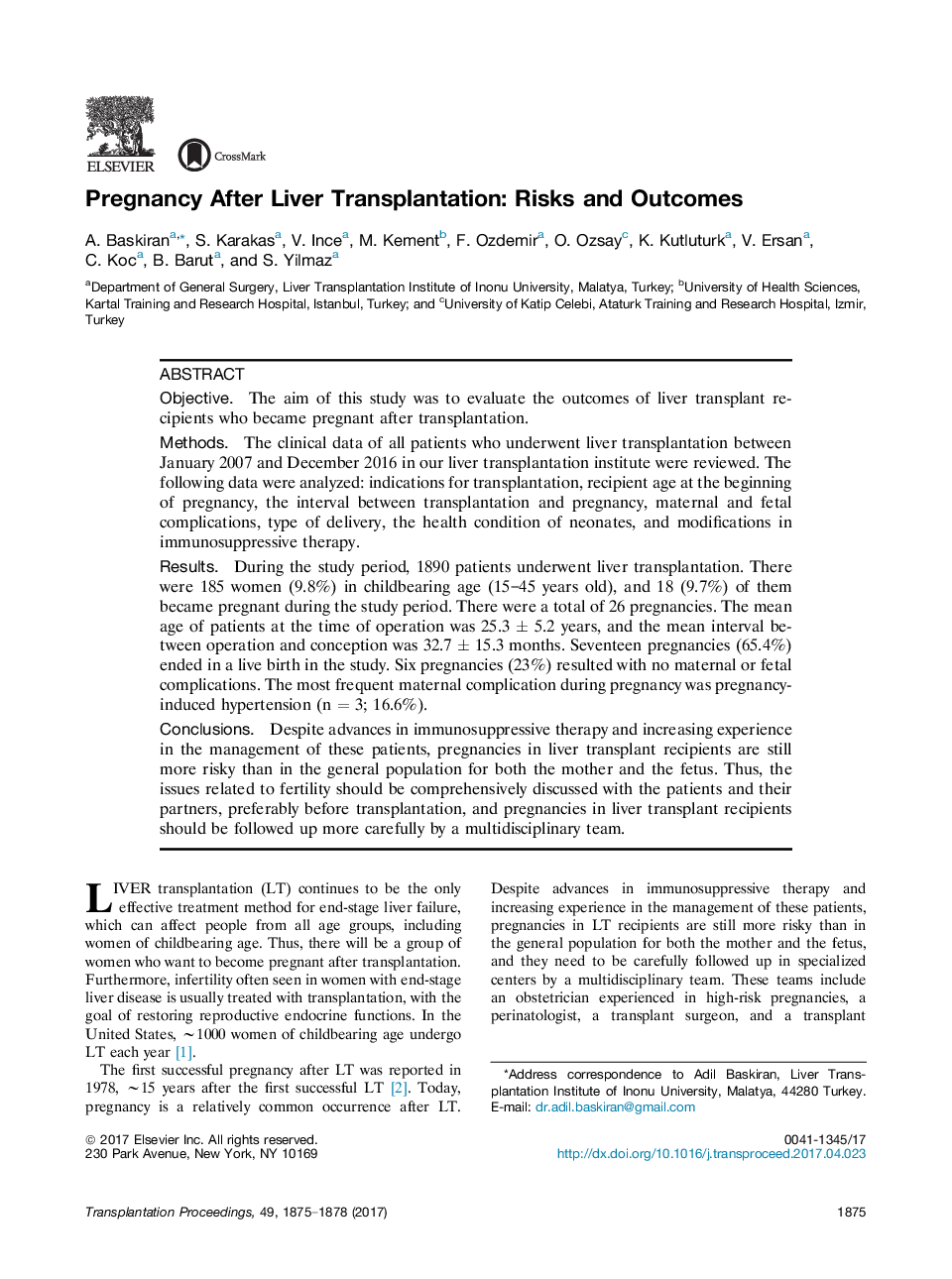| Article ID | Journal | Published Year | Pages | File Type |
|---|---|---|---|---|
| 5728645 | Transplantation Proceedings | 2017 | 4 Pages |
â¢The aim of this study was to evaluate the outcomes of liver transplant (LT) recipients who became pregnant after transplantation.â¢Despite advances in immunosuppressive therapy and increasing experience in the management of these patients, pregnancies in LT recipients are still more risky than in the general population for both the mother and the fetus.â¢The issues related to fertility should be comprehensively discussed with the patients and their partners, preferably before transplantation, and pregnancies in LT recipients should be followed up more carefully by a multidisciplinary team.
ObjectiveThe aim of this study was to evaluate the outcomes of liver transplant recipients who became pregnant after transplantation.MethodsThe clinical data of all patients who underwent liver transplantation between January 2007 and December 2016 in our liver transplantation institute were reviewed. The following data were analyzed: indications for transplantation, recipient age at the beginning of pregnancy, the interval between transplantation and pregnancy, maternal and fetal complications, type of delivery, the health condition of neonates, and modifications in immunosuppressive therapy.ResultsDuring the study period, 1890 patients underwent liver transplantation. There were 185 women (9.8%) in childbearing age (15-45 years old), and 18 (9.7%) of them became pregnant during the study period. There were a total of 26 pregnancies. The mean age of patients at the time of operation was 25.3 ± 5.2 years, and the mean interval between operation and conception was 32.7 ± 15.3 months. Seventeen pregnancies (65.4%) ended in a live birth in the study. Six pregnancies (23%) resulted with no maternal or fetal complications. The most frequent maternal complication during pregnancy was pregnancy-induced hypertension (n = 3; 16.6%).ConclusionsDespite advances in immunosuppressive therapy and increasing experience in the management of these patients, pregnancies in liver transplant recipients are still more risky than in the general population for both the mother and the fetus. Thus, the issues related to fertility should be comprehensively discussed with the patients and their partners, preferably before transplantation, and pregnancies in liver transplant recipients should be followed up more carefully by a multidisciplinary team.
